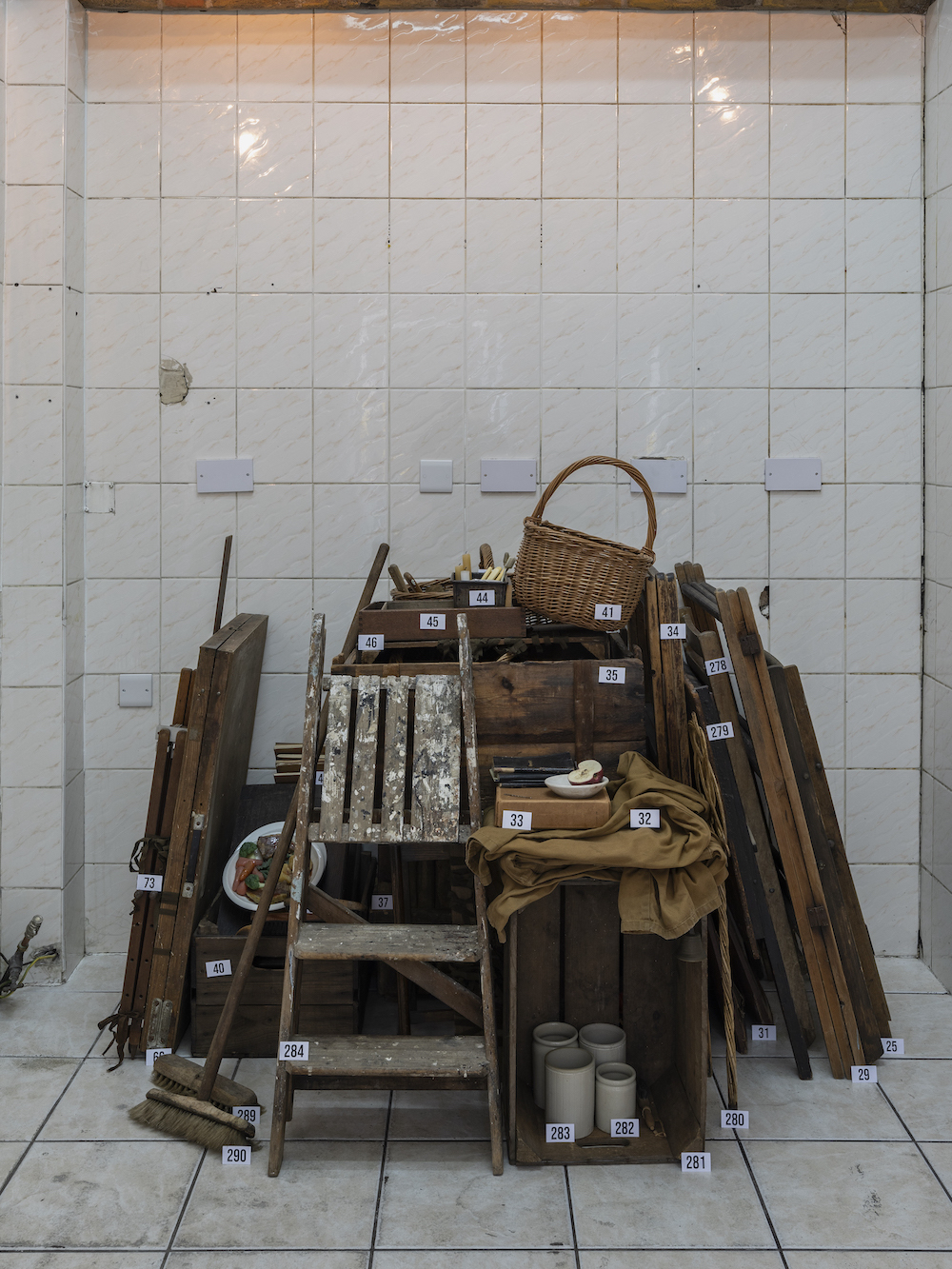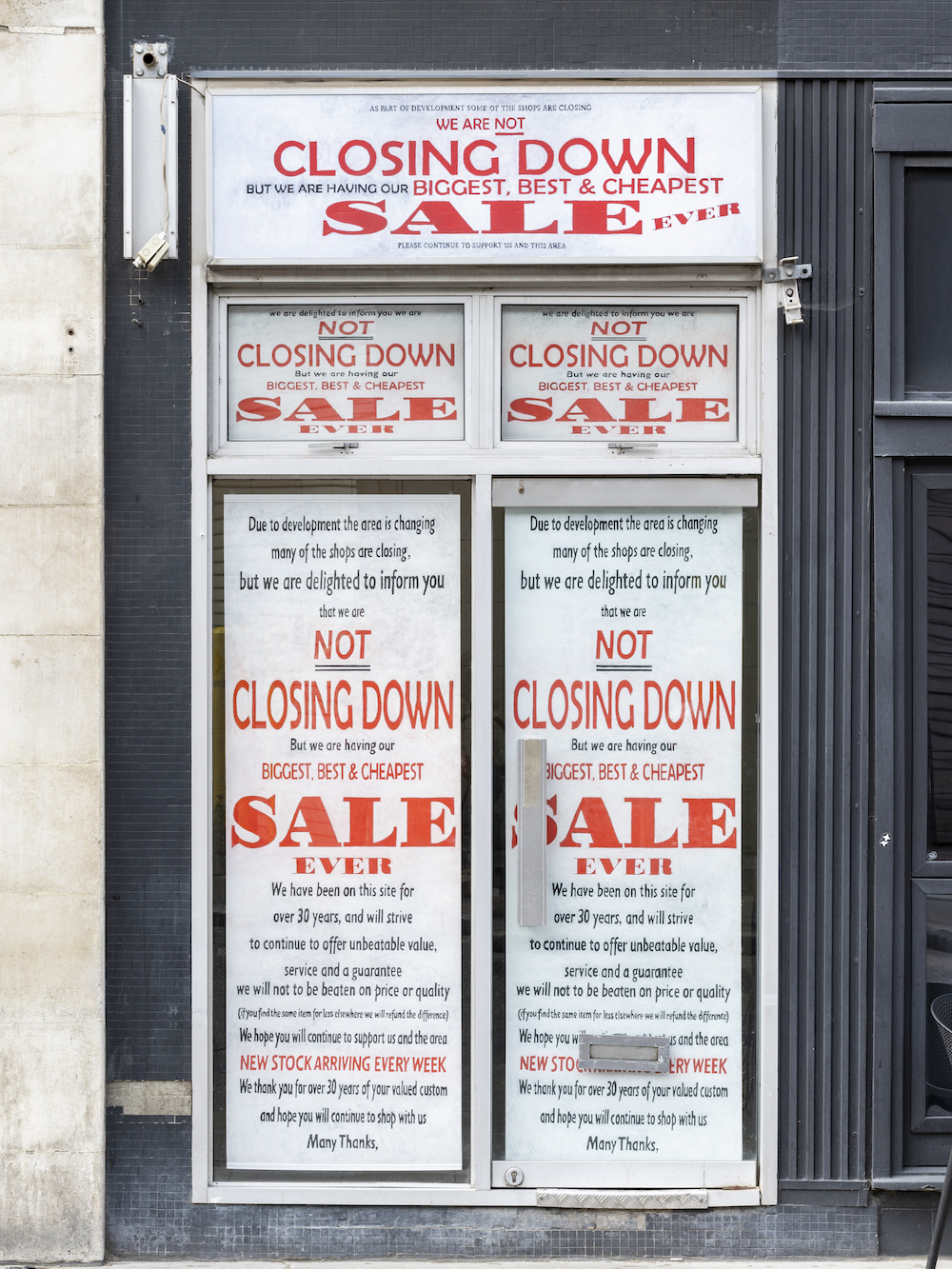Alex Margo Arden: All Clear | Ginny on Frederick
Inside a small, tiled room opposite Smithfield meat market, surrounded by an unplacable odour, lies a charismatic pile of wooden furniture. It’s the work of Alex Margo Arden, a performance artist with her roots in the theatre. It’s on show in a gallery that used to be an old fashioned sandwich shop, the kind made practically extinct by the rise of Pret and its bougier competitors, especially in the city centre.
Why charismatic? There’s something in its neglect, the slumped poses of the folded up tables and chairs seem defeated. Mixed in with the furniture, all part of the same pile, are candles, scissors, a tin opener; weirdest of all, a couple of plates of “replica museum food” in plastic. Many of the pieces in the pile have careful numbered labels, as if they were in a museum vitrine. “Woodworm, dust” are included in the materials described in this piece, entitled The Days Before The Time After.

Outside on the doors of the gallery are hand-painted signs, ironically artisinal recreations of posters used by a local shop a few years back: As part of development some of the shops are closing, one of them reads. We are delighted to inform you that we are NOT CLOSING DOWN But we are having our BIGGEST, BEST & CHEAPEST SALE EVER.
Some of the development includes the construction of an Elizabeth Line station, an entrance for which is in a garish office block around the corner, and ongoing works for a new Museum of London site in one of the meat market’s buildings. The shop which came up with the campaign has since closed down of course, just like the old sandwich shop that’s now a gallery: it’s enough to make me feel a bit guilty for raving about Chantal Joffe’s works for an Elizabeth Line station a few weeks back.

Taken together, Arden’s telling us a sly story of the old being swept away for the new, no matter how nice the sandwiches were, or how clever the sale posters. Her tone is more mocking than mournful: she chose to title the posters We Are Not But We Are.
Arden knows very well the shared charisma of these old and worn-out objects and slogans from the past, when they’re put together, itemised and displayed. (I later found out from reading the exhibition notes, that the spotlights, tiles and even the odour “composed of forty-two synthetic elements” are part of the show.)
In her careful marshalling of ideas to inform collections of objects that are initially unimpressive to look at - but reward closer inspection and become more impressive once the viewer thinks more deeply about these ideas - she reminds me of Cornelia Parker, whose large monograph exhibition at Tate Britain I’ve been thinking about since I visited last week.
Arden has her roots in theatre: this small room is her stage, this pile of objects her players, the careful painted signs her show bills. She tells us a tongue-in-cheek story of a delicately reconstructed past, from the days before the time after, here for a short while before being left behind forever. She knows that when we step back outside, the future will be all around us. And that we’ll maybe feel a passing wistfulness, shrug, and get on with our day.
Alex Margo Arden: All Clear is at Ginny on Frederick (London). 28 May - 10 July 2022